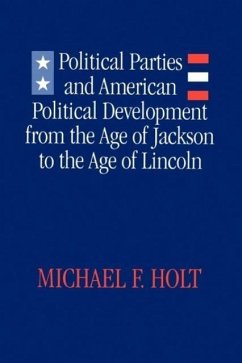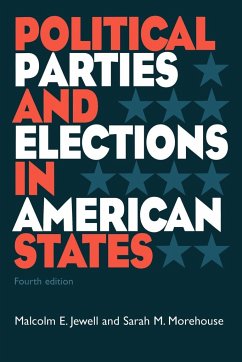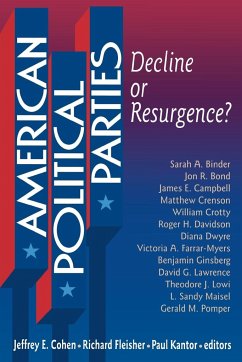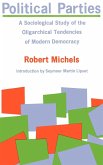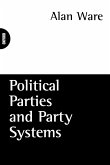For more than twenty years Michael F. Holt has been considered one of the leading specialists in the political history of the United States. Political Parties and American Political Development from the Age of Jackson to the Age of Lincoln is a collection of some of his more important shorter studies on the politics of nineteenth-century America.The collection focuses on the mass political parties that emerged in the 1820s and their role in broader political developments from that decade to 1865. Holt includes essays on the Democratic, Antimasonic, Whig, and Know Nothing parties, as well as one on Abraham Lincoln's relationship with the congressional wing of the Republican party during the Civil War. Almost all essays touch on the broad question of the role of partisan politics in explaining the outbreak of the war. Individual essays address the following questions as well: What explains the birth and death of powerful third parties? What was the relationship among economic conditions, party performance in office (especially legislative performance), and the mobilization of an unprecedented number of voters between 1836 and 1840? Why did the Whigs find it necessary to nominate military hero Zachary Taylor as their presidential candidate in 1848? What explains the death of the Whig party? What role did ethnoreligious issues and the Know Nothing party play in the realignment of the 1850s and the ultimate triumph of the Republican party? In what ways did the continuation of two-party competition after 1860 help the North win the Civil War?Most of the essays have been published previously over a twenty-year span, but there are also two new pieces. "The Mysterious Disappearance of the American Whig party," originally delivered as the Commonwealth Fund Lecture at University College London in February, 1990, seeks to explain why the Whig party died in the 1850s. This essay contrasts the fate of the Whig party with the fates of the Republican party in the 1930s and 1970s and the British Conservative party in the 1840s and 1850s - parties that survived similar, indeed graver, challenges than those to which the Whigs succumbed. In addition, Holt has written and excellent introduction in which he explains how he came to write the essays and reflects upon them in light of the current state of political history as a discipline.Political Parties and American Political Development from the Age of Jackson to the Age of Lincoln offers provocative insights into both the history of nineteenth-century politics and the way it is studied.
Hinweis: Dieser Artikel kann nur an eine deutsche Lieferadresse ausgeliefert werden.
Hinweis: Dieser Artikel kann nur an eine deutsche Lieferadresse ausgeliefert werden.

